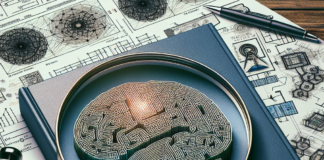In just a few years, Artificial Intelligence (AI) has leaped from science fiction to real-world transformation—and nowhere is its impact more visible than in the fields of healthcare, education, and law. What once seemed like futuristic speculation is now today’s reality, reshaping how professionals work, how people learn, and how justice is served. Let’s explore how AI is accelerating change in these critical sectors—faster than most expected.
1. Healthcare: From Reactive to Proactive Care
AI is rewriting the rules of healthcare, turning reactive treatment into proactive and personalized care.
- Early Diagnosis and Prediction: AI algorithms now detect diseases like cancer, Alzheimer’s, and heart conditions earlier than traditional methods. Tools like Google’s DeepMind have demonstrated unprecedented accuracy in diagnosing eye diseases and breast cancer.
- Virtual Health Assistants: AI chatbots and virtual assistants are helping triage symptoms, schedule appointments, and answer medical questions 24/7, easing the burden on healthcare systems.
- Personalized Medicine: AI models analyze genetic data and lifestyle factors to craft customized treatment plans. In oncology, for instance, AI helps identify which therapies will be most effective for a specific tumor profile.
- Robotic Surgery & Automation: AI-assisted robotic surgery enables more precise operations, reducing recovery times and surgical risks. Behind the scenes, AI also automates administrative tasks like billing and medical records management.
Bottom Line: AI is making healthcare more predictive, efficient, and tailored to individual patients, saving both time and lives.
2. Education: Smarter Learning for a Smarter Generation
In classrooms and beyond, AI is transforming how knowledge is delivered and how students engage with it.
- Personalized Learning Paths: Adaptive learning platforms, powered by AI, adjust lessons in real-time to suit each student’s pace and style. Companies like Duolingo and Khan Academy are using AI to boost retention and engagement.
- Automated Grading & Feedback: AI tools now grade essays, quizzes, and even long-form assignments, giving teachers more time to focus on instruction and student mentorship.
- 24/7 Tutoring & Support: AI-powered chatbots serve as around-the-clock tutors, providing explanations, answering questions, and guiding students through problems at any time.
- Language Translation & Accessibility: AI translation tools break down language barriers, while speech-to-text and text-to-speech features help learners with disabilities or diverse needs.
Bottom Line: AI is democratizing education, enabling customized, scalable, and inclusive learning experiences across the globe.
3. Law: Speeding Up Justice with Smart Tools
Legal professionals are tapping into AI to streamline processes, cut costs, and improve access to justice.
- Legal Research in Seconds: AI-powered platforms like Lexis+ and CaseText can analyze thousands of legal documents, case law, and statutes in moments—tasks that once took hours or days.
- Contract Analysis & Drafting: AI tools can now draft, review, and flag risks in contracts faster and more accurately than human paralegals, reducing human error and legal costs.
- Predictive Analytics: By analyzing past court decisions, AI helps lawyers estimate case outcomes, which improves legal strategy and decision-making.
- Access to Justice: AI chatbots like DoNotPay assist users with small claims, parking disputes, and other legal services, making the law more accessible to everyday people without the high cost of legal representation.
Bottom Line: AI is not replacing lawyers—it’s empowering them to work smarter, faster, and fairer, while opening the legal system to those previously left out.
Why This Matters Now
The AI revolution isn’t waiting for permission. It’s already transforming institutions we rely on daily. What’s different today is the speed—advancements that once took a decade are now unfolding in months. Generative AI, large language models, and machine learning algorithms are pushing the boundaries of what’s possible, and the pace is only accelerating.
Whether it’s diagnosing diseases earlier, tailoring education to every student, or making legal help more affordable, AI is rewriting the playbook across industries. And this is just the beginning.
Final Thought: Embrace the Future—It’s Already Here
While AI’s rapid rise poses challenges—such as data privacy, bias, and regulation—its transformative potential is undeniable. The key isn’t to resist AI, but to harness it ethically and intelligently.
Because ready or not, AI is changing healthcare, education, and law faster than you think—and those who adapt today will lead tomorrow.
Get more information, on our website



